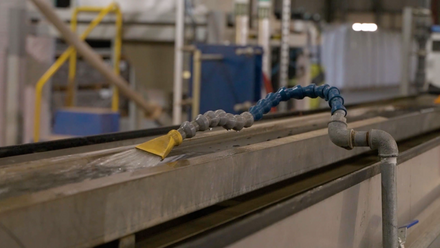UK Foreign Affairs Committee calls for Critical Mineral targets
The UK’s critical minerals supply chains have been found to be vulnerable due to its continuing dependence on autocracies – in particular China – and the inaction of successive UK governments, according to a report from the Foreign Affairs Committee.

The Foreign Affairs Committee, Commons Select Committteee is calling for action on critical minerals like Cobalt
© RHJPhtotos/ShutterstockThe Foreign Affairs Committee, a Select Committee of the UK Parliament House of Commons is publishing its report, A rock and a hard place: building critical mineral resilience.
The Committee finds that successive UK governments have failed to recognise the importance of critical minerals. It calls on the Government to publish specific targets for priority sectors and to provide a more detailed implementation plan.
The Committee says the Government has lacked the foresight to respond to the capture of large parts of the market, over the last three decades, by China, and the consequent vulnerabilities in terms of our economic resilience and security.
The Committee has concluded that the UK is lagging behind its allies in its response to the challenge. The report finds that the Government’s Critical Minerals Strategy is too broad and does not convey the sense of urgency and the need for decisive action if the UK is to compete effectively for resources and meet net zero commitments.
The Government’s decision not to assess the vulnerabilities and dependencies in the UK’s industrial supply chains before producing the Critical Minerals Strategy is being criticised by the Committee.
The Committee says without a clear steer from Government, the UK risks a scattergun approach to 'de-risking' from industry, as well as ineffective use of the UK's diplomatic leverage.
Chair of the Foreign Affairs Committee, Alicia Kearns MP, said, ‘From F35 fighter jets to the batteries in our phones, critical minerals are the building blocks of many modern technologies. They are integral to every-day living, the green transition and our nation’s defence.
‘But this reliance has created vulnerability – and in the race for resources the UK is falling behind. China has strategically embedded itself in the middle of the critical minerals supply chain, developing the vast majority of the world’s refining capacity…
‘This is primarily about power, not trade. The supply of critical minerals is more a geopolitical issue than a geological one. The scale of the challenge ahead of us is huge, but the need to act now is undeniable.’
IOM3 CEO Dr Colin Church CEnv FIMMM, said, ‘Critical minerals are fundamental to the UK economy and transition to a low-carbon, resilient and resource efficient society. As the Committee note, there is a real need for a co-ordinated, cross-government approach and action at pace, as vice-chair of the industry Task & Finish group mentioned in the Committee's document, I very much hope the Government will use our forthcoming report to help drive this forward in a way that supports UK industry.
‘None of this will be possible, however, without enough people with the required skills, education and training. As outlined in our recent report to Government, there are considerable skills gaps developing across the value chain and a decline in UK education and training provision. All players need to act urgently to address this growing talent gap to secure the sustainable and responsible workforce necessary.’







